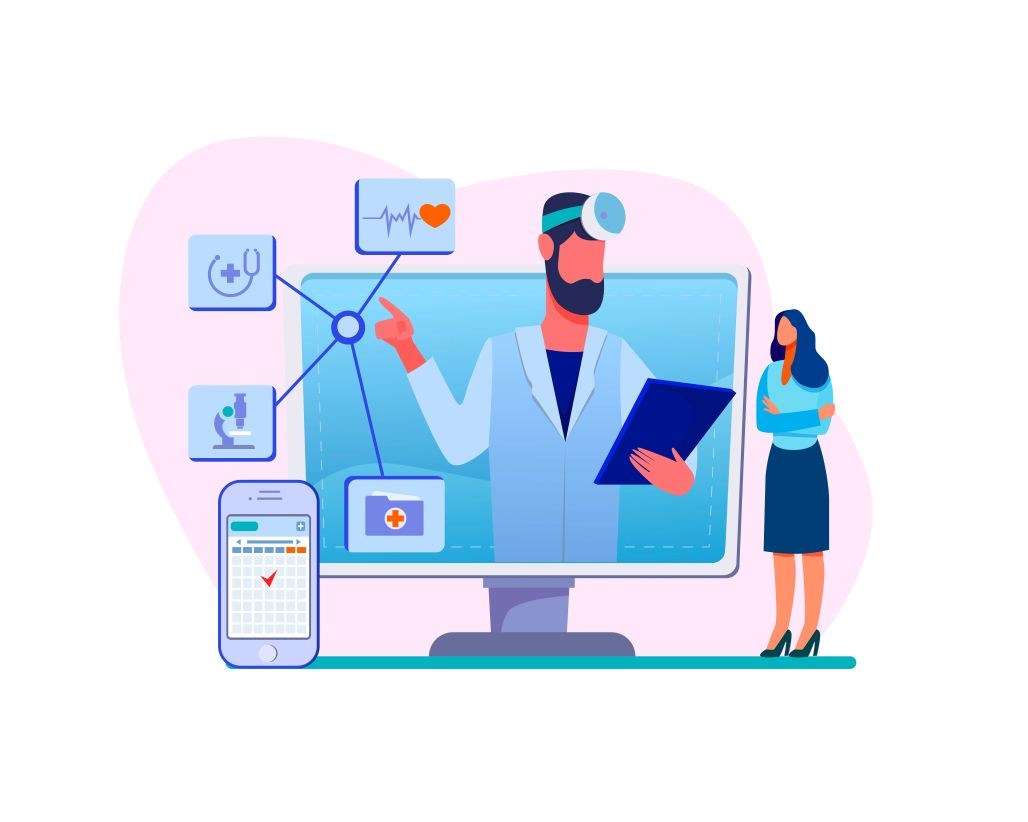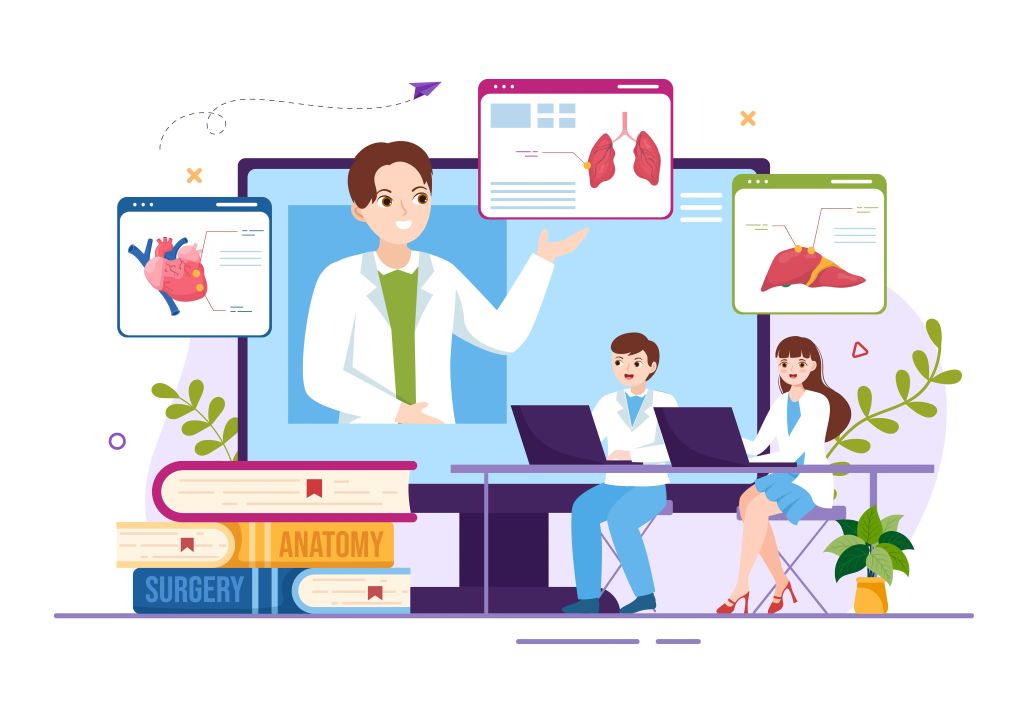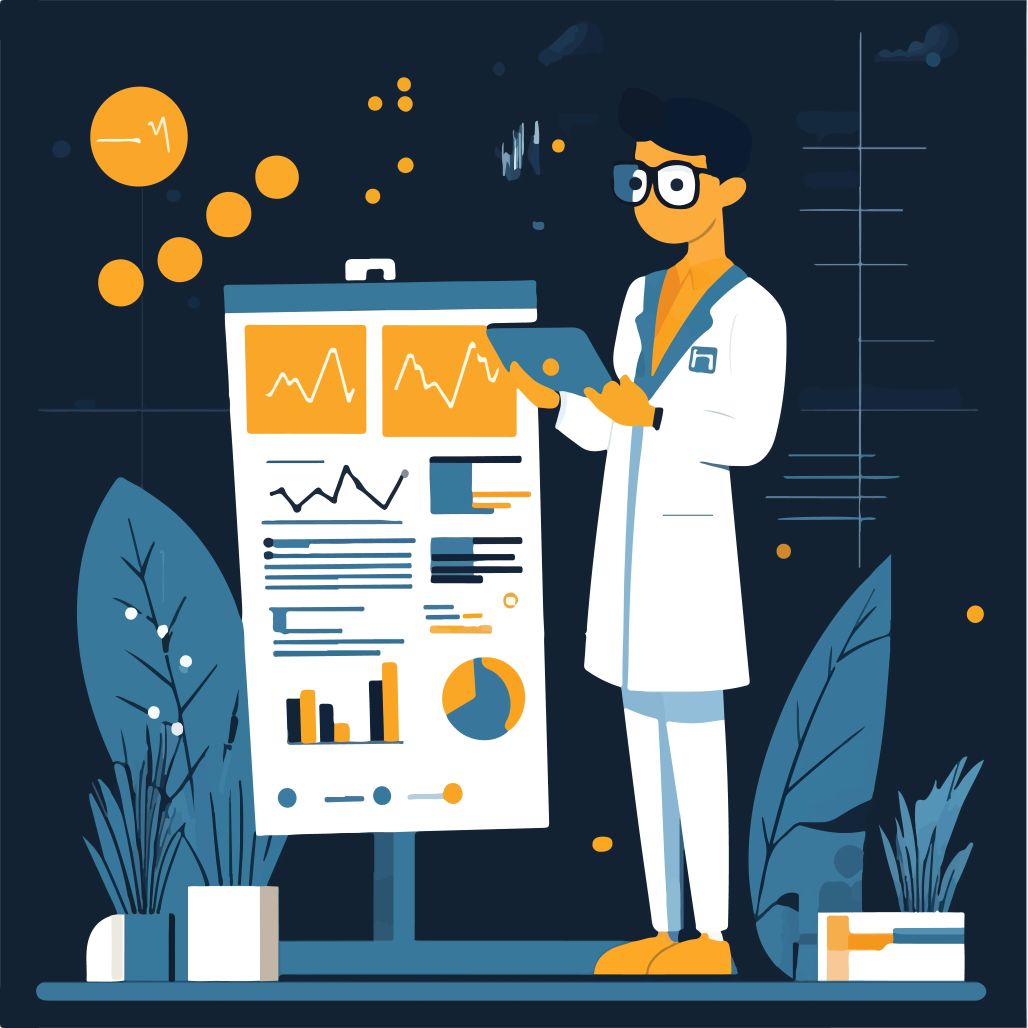In today's highly regulated healthcare landscape, organizations must prioritize comprehensive healthcare compliance training as a fundamental operational pillar. Healthcare LMS compliance and training considerations are critical for safeguarding sensitive patient data, ensuring adherence to regulations, and maintaining operational excellence. This commitment is essential to safeguarding sensitive patient data, ensuring strict adherence to a complex web of regulations, and minimizing legal, financial, and reputational risks. With stringent, non-negotiable standards like HIPAA, OSHA, PCI DSS, and various global data protection laws, compliance is far from optional—it is an absolute necessity. A robust Learning Management System (LMS) purpose-built for healthcare training plays a crucial role in delivering structured, effective, and easily scalable training programs that are meticulously tailored to meet these critical compliance demands.A healthcare compliance LMS further strengthens this by ensuring regulatory alignment, centralized tracking, and verifiable audit trails
The most effective and future-proof approach to achieving this is through a modern, AI-driven LMS designed specifically for the unique needs of healthcare organisations. Compliance training in healthcare using LMS ensures standardized delivery, measurable progress, and ongoing alignment with regulatory requirements." Unlike generic platforms, advanced solutions like Calibr Learn empower teams with adaptive, personalized learning pathways that ensure knowledge retention and practical application. These systems go beyond simple content delivery; they use intelligent analytics to identify knowledge gaps, automate certification tracking, and provide verifiable proof of compliance. Integrated compliance platforms healthcare training needs are met by centralizing policies, assessments, and role-based content into a single, manageable system. This ensures that training is not just a box-ticking exercise but a dynamic process that continuously aligns with and evolves alongside changing regulatory frameworks, ultimately fostering a pervasive culture of compliance and safety.
To discover how a tailored AI-powered LMS can transform your organization's compliance training strategy, explore more about the Calibr product solution by visiting our website or contact us for more details
Why Healthcare Compliance Training Matters

Compliance in healthcare goes beyond regulatory checklists—it’s about protecting patients, fostering trust, and building a culture of accountability. The right healthcare compliance software ensures staff understand policies, procedures, and ethical practices that directly impact patient care and organizational reputation.
According to the U.S. Department of Health & Human Services, healthcare organizations face penalties of up to $1.5 million annually for HIPAA violations (HHS.gov). Effective training helps mitigate such risks.
Healthcare compliance training ensures employees are equipped with the knowledge to:
Recognize and prevent violations such as data breaches or fraudulent billing.
Protect sensitive patient information in line with HIPAA and global privacy laws.
Reduce liability risks for both individuals and organizations.
Foster a workplace culture where compliance is a shared responsibility, not just a legal requirement.
By embedding compliance training into daily operations through an LMS for healthcare industry, organizations create an environment where compliance becomes second nature.
Key Elements of Effective Healthcare Compliance Training
The seven elements of an effective compliance program provide a strong foundation for healthcare organizations. When designing training programs, healthcare LMS compliance and training considerations play a critical role in ensuring policy accessibility, real-time monitoring, and accountability
Clear written policies and procedures: Policies act as a reference point for staff and define expectations. A digital LMS allows these policies to be accessible anytime, ensuring transparency and consistency.
Compliance leadership and oversight: Designated compliance officers and committees ensure accountability. With LMS dashboards, leaders can monitor completion rates, performance, and compliance gaps in real time.
Effective training and education: An LMS for healthcare training offers structured learning modules, microlearning lessons, and gamified content to make compliance engaging and memorable.
Open lines of communication: Employees must feel empowered to report concerns without fear. Integrated LMS messaging and discussion boards provide anonymous and open communication channels.
Regular monitoring and auditing: Compliance requires ongoing evaluation. With real-time analytics from platforms like Calibr, organizations can audit training records instantly, ensuring readiness for inspections.
Enforcement of standards: Training isn’t enough unless standards are consistently enforced. By linking LMS assessments with performance reviews, organizations can ensure compliance is tied to accountability.
Prompt response and corrective actions: Mistakes happen, but the response time is critical. An LMS enables rapid rollouts of new training modules when regulations change or violations occur.
When integrated with a robust LMS system for healthcare like Calibr , these elements become easier to operationalize, track, and sustain across the entire organization.
Strategies for Effective Healthcare Compliance Training
Building a strong, sustainable culture of compliance requires more than just annual mandatory training; it demands a strategic and engaging approach. Proven strategies move beyond theory to create practical, lasting understanding:
Role-based Training: Generic training leads to disengagement. Tailoring modules to specific roles—such as nuanced privacy protocols for nurses, prescribing guidelines for doctors, and billing ethics for admin staff—ensures the content is directly relevant and immediately applicable, drastically increasing its value and retention.A common question is: how do integrated compliance platforms address healthcare's diverse training needs? By centralizing role-specific content, tracking learner progress, and adapting delivery, these platforms ensure all staff receive relevant, compliant training.
Microlearning & Gamification: Compliance training in healthcare using LMS transforms static content into interactive, engaging modules that staff can easily consume and retain.Complex regulations like HIPAA can be overwhelming. Breaking them into 5-7 minute bite-sized lessons makes them digestible. When paired with gamification—such as points, badges, and leaderboards for completing modules—these lessons transform from a chore into an engaging challenge that promotes healthy competition and knowledge retention.
Scenario-based Learning: Theoretical knowledge often fails in practical situations. Using immersive, real-world case studies of actual HIPAA breaches or safety incidents forces employees to critically think and apply rules in a safe environment. Integrated compliance platforms healthcare training needs are addressed by providing adaptable modules that suit multiple roles, departments, and regulatory requirements simultaneously.
Continuous Learning Model: Regulations are not static, and neither should training be. Moving away from the ineffective "one-and-done" annual session to a continuous model, powered by an LMS that pushes regular micro-updates, brief quizzes, and policy change notifications, ensures your workforce's knowledge remains current and top-of-mind.
Blended Learning: The human element is crucial. Combining the efficiency of online LMS modules with facilitated workshops, team discussions, and live compliance simulations creates a comprehensive learning ecosystem. This blend reinforces online material, allows for Q&A with experts, and builds a shared commitment to compliance.
By intentionally aligning these strategies with the advanced capabilities of modern platforms like Calibr Learn (for AI-driven delivery) and Calibr Craft (for intelligent content creation), healthcare organizations can achieve the dual triumph of unwavering regulatory compliance and genuinely engaged, empowered staff.
Choosing the Best LMS for Healthcare: Key Features

Selecting an LMS for healthcare is a strategic decision. It must be a powerful engine for learning and a robust system for risk management. When making this choice, LMS selection criteria for healthcare compliance and training should guide evaluation, including features like role-based learning, adaptive content, mobile access, and automated reporting. Many healthcare LMS demos include compliance training features to showcase role-based modules, adaptive learning, and reporting dashboards. Healthcare LMS compliance and training considerations ensure the chosen platform supports role-based learning, adaptive pathways, and automated certification tracking. Here’s a detailed look at the non-negotiable features:
AI-Powered Personalized Learning: A modern LMS must do more than host content. Platforms like Calibr Learn use AI to assess individual knowledge gaps and automatically tailor learning paths for different roles. This ensures a nurse doesn't waste time on irrelevant billing content and an administrator focuses on their specific compliance mandates, maximizing efficiency and relevance.
Microlearning Modules: To combat cognitive overload in busy healthcare environments, the LMS must support and encourage microlearning. This approach deconstructs daunting regulatory texts into focused, manageable lessons that are easier to comprehend, remember, and apply during a hectic shift.
Integrated Assessment and Certification: Compliance requires proof. The system must have robust assessment tools that validate understanding. Upon successful completion, it should automatically generate verifiable, time-stamped digital certificates. This creates an immutable audit trail to demonstrate due diligence to regulators and assure patients of your commitment.
SCORM and xAPI Compliance: Healthcare organizations often have existing training investments. An LMS must be compatible with global standards like SCORM and xAPI to seamlessly import, track, and report on legacy content. This protects previous investments and allows for a rich ecosystem of both off-the-shelf and custom-built courses.
True Mobile Learning: Healthcare professionals are constantly on the move across wards, clinics, and shifts. The LMS must be fully mobile-optimized, offering a flawless experience on any device. Crucially, it should provide offline access, allowing staff to download and complete training without a network connection, with progress syncing automatically once they're back online.
Additionally, LMS products with built-in authoring tools for healthcare compliance training allow organizations to quickly design and customize courses without external support.
Calibr’s LMS offerings are architecturally designed to include all these critical features and more, providing a complete, secure, and scalable healthcare training and compliance solution tailored for organizations of every size.
The Tangible Benefits of a Specialized Healthcare LMS
Implementing a best-in-class LMS like Calibr delivers measurable Return on Investment (ROI) that extends far beyond simply checking a compliance box:
Centralized Content Management: With a feature like the Calibr Content Hub, all compliance resources—courses, policy documents, procedure videos, and quick-reference guides—are stored in a single, secure repository. This eliminates version control issues (e.g., outdated manuals), ensures everyone accesses the same latest information, and simplifies content updates across the entire organization.
Significantly Higher Engagement & Retention: By leveraging built-in gamification and microlearning principles, the LMS transforms mandatory training from a passive activity into an active experience. This leads to higher completion rates, less procrastination, and, most importantly, superior long-term knowledge retention compared to traditional long-format courses.
Automated, Audit-Ready Reporting: Perhaps one of the greatest administrative benefits is automation. The LMS generates real-time dashboards and detailed analytics with a single click, providing transparent proof of compliance progress, certification status, and knowledge gaps across teams. This allows leadership to demonstrate clear diligence to auditors and make data-driven decisions about training investments.
Global Scalability and Consistency: For international healthcare providers, training a diverse, multi-lingual workforce consistently is a monumental challenge. A sophisticated LMS with multi-language support allows you to deploy standardized compliance training globally, ensuring the same high level of care and regulatory adherence is maintained across every facility, in every region.
By leveraging a comprehensive platform like Calibr Craft, healthcare organizations gain the ability to not only deliver but also to rapidly design and deploy custom, high-quality compliance modules. This intelligent course authoring capability ensures training—from HIPAA and OSHA to internal safety protocols—is perfectly tailored to the organization's specific workflows and needs, future-proofing their compliance program.
For more information on all the organizational benefits of using an LMS, including compliance, read our full blog on Top 10 Benefits of Using a Learning Management System (LMS) for Healthcare Training
Measuring ROI of Healthcare Compliance Training

Healthcare leaders often ask: does compliance training deliver measurable results? With an advanced LMS, the answer is a confident yes. Modern LMS platforms provide detailed analytics that make it possible to quantify the impact of training programs on organizational performance and compliance outcomes.
Ways to measure ROI include:
Reduction in Violations: Track fewer HIPAA or OSHA violations after implementing training, showing a direct impact on regulatory compliance.
Audit Performance: Evaluate the organization’s preparedness during audits and the decrease in corrective actions needed, demonstrating the effectiveness of ongoing training programs.
Employee Productivity: Monitor reduced downtime and fewer errors related to compliance breaches, which positively affects workflow efficiency.
Cost Savings: Calculate financial savings from avoided penalties, lawsuits, and compliance remediation efforts.
Engagement Metrics: Utilize LMS analytics to assess course completion rates, knowledge retention, and learner satisfaction, providing insight into training effectiveness and engagement levels.
Platforms like Calibr Learn offer real-time dashboards that turn training data into actionable insights. This allows leaders to demonstrate that compliance training is not only a risk mitigation strategy but also a value-generating investment that contributes to organizational success.
Measuring ROI also helps healthcare organizations make informed decisions about training budgets, prioritize high-impact areas, and continuously optimize the training program to maximize efficiency and compliance adherence.
Implementing Healthcare Compliance Training with an LMS
Successful implementation requires a structured approach, clear objectives, and continuous monitoring. Deploying a healthcare compliance LMS allows organizations to monitor progress, identify knowledge gaps, and ensure consistent delivery of mandatory compliance modules. Key steps include:
Assess Needs: Begin with a thorough assessment to identify regulatory gaps, high-risk areas, and the specific compliance training needs of your organization.
Set Clear Goals: Define training objectives such as achieving HIPAA certification for staff or reducing specific types of compliance violations.
Customize Content: Use Calibr Craft to design role-specific modules tailored to job functions, ensuring employees receive relevant and actionable training.
Pilot Programs: Test LMS modules with a smaller group to gather feedback and make adjustments before organization-wide rollout.Using LMS products with built-in authoring tools for healthcare compliance training ensures that updates can be deployed rapidly as regulations change, keeping all employees current
Track Progress: Leverage Calibr Learn analytics to monitor participation, knowledge retention, and compliance adherence in real time.This approach exemplifies compliance training in healthcare using LMS, as administrators can identify gaps and provide targeted remediation
Continuous Improvement: Update and refine training programs regularly to reflect changes in healthcare regulations, emerging risks, and lessons learned from audits. Following clear LMS selection criteria for healthcare compliance and training ensures that any updates or new modules integrate seamlessly and maintain regulatory alignment.
A successful implementation plan ensures smooth adoption of the LMS, promotes consistent learning experiences, and embeds a culture of continuous compliance within the organization.
How It Works in Practice
A mid-sized healthcare provider faced challenges with inconsistent compliance training, low engagement, and errors in patient data handling. They used Calibr Learn to address these issues through the following steps:
Role-Specific Learning Paths: Nurses, lab technicians, and administrative staff received tailored content relevant to their responsibilities.
Microlearning Modules: Complex compliance regulations were broken into short, digestible lessons.
Scenario-Based Exercises: Real-world case studies allowed employees to apply knowledge practically.
Rapid Course Updates: Calibr Craft enabled administrators to update courses quickly as regulations changed.
Real-Time Dashboards: Completion rates, assessment scores, and knowledge gaps were monitored instantly.
Engagement Features: Gamification and mobile access kept staff motivated and allowed training on-the-go.
Results:
Faster onboarding for new employees.
Improved compliance test scores.
Significant reduction in data handling errors.
Ability to identify and address knowledge gaps proactively.
Transform your healthcare organization’s compliance training with Calibr and ensure your teams stay engaged, knowledgeable, and fully compliant.
Healthcare Compliance Certifications
Obtaining a certification in healthcare compliance validates an employee’s knowledge and strengthens organizational readiness. Structured training through an LMS ensures alignment with regulatory expectations and promotes a professional standard for all staff.
For example, the Health Care Compliance Association (HCCA) offers Certified in Healthcare Compliance (CHC) credentials (HCCA Official Site). This certification demonstrates a professional commitment to compliance, ethical practices, and the organization’s dedication to patient safety and regulatory adherence.
Certifications also provide tangible evidence to regulators and stakeholders that staff are trained to meet legal and ethical requirements, which enhances organizational credibility.
Industry Use Cases
Employee Onboarding: Embedding compliance essentials in onboarding ensures new hires understand key policies and procedures from day one.
Ongoing Training: Regular refresher courses keep staff updated on changing regulations and reinforce best practices, reducing knowledge gaps.
Audit Preparedness: Real-time reporting through platforms like Calibr ensures that all training records are complete and audit-ready.
Risk Reduction: Consistent and effective compliance training reduces human error—a leading cause of healthcare violations—protecting both patients and the organization.
Through these use cases, healthcare organizations can improve operational efficiency, safeguard patient data, and maintain a strong compliance culture.
Future of Healthcare Compliance Training
The future of healthcare compliance training is increasingly adaptive, personalized, and driven by data analytics. AI-powered LMS solutions, like Calibr, use intelligent recommendations to identify knowledge gaps, suggest relevant training, and track individual and organizational progress in real time. These innovations demonstrate how integrated compliance platforms healthcare training needs can be met efficiently across diverse healthcare teams.
By leveraging AI, predictive analytics, and adaptive learning technologies, organizations can anticipate compliance risks, deliver just-in-time training, and enhance overall workforce competency. To further illustrate, understanding how integrated compliance platforms address healthcare's diverse training needs helps hospitals select solutions that align with their multi-role, multi-location teams
Investing in advanced LMS platforms not only enhances compliance but also drives operational efficiency, improves patient safety, and supports long-term organizational performance. As healthcare regulations continue to evolve, organizations that adopt adaptive, data-driven training approaches will remain agile and fully prepared to meet future compliance challenges.
External Insights and Stats
Compliance training reduces healthcare fraud losses by 20% annually (FBI Healthcare Fraud Report).
In a major 2025 healthcare fraud crackdown, over $14.6 billion in alleged fraud was involved, with the U.S. government charging 324 defendants.
61% of healthcare data breach threats come from negligent or careless employees, according to a 2024 report
Conclusion: Strengthening Healthcare Compliance with the Right LMS
Healthcare compliance is not just about avoiding fines—it’s about patient safety, trust, and long-term sustainability. An advanced LMS for healthcare organisations, such as Calibr Learn, offers the tools to deliver compliance training that is engaging, efficient, and audit-ready.
From Calibr Content Hub to Calibr Craft, healthcare organizations can integrate compliance training seamlessly into their workflows. With features like AI-powered course authoring, gamification, and real-time analytics, compliance training becomes a continuous, value-driven process.
Ready to transform your Healthcare Compliance training?
Sign up for a 14 day free trail or contact us or schedule a demo to get started
Investing in the best LMS for healthcare ensures your teams are not only compliant but also empowered to deliver the highest standards of patient care.


